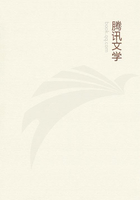SOCRATES: I will tell you what I suspect to be the meaning and lesson of that inscription. Let me take an illustration from sight, which I imagine to be the only one suitable to my purpose.
ALCIBIADES: What do you mean?
SOCRATES: Consider; if some one were to say to the eye, 'See thyself,' as you might say to a man, 'Know thyself,' what is the nature and meaning of this precept? Would not his meaning be:--That the eye should look at that in which it would see itself?
ALCIBIADES: Clearly.
SOCRATES: And what are the objects in looking at which we see ourselves?
ALCIBIADES: Clearly, Socrates, in looking at mirrors and the like.
SOCRATES: Very true; and is there not something of the nature of a mirror in our own eyes?
ALCIBIADES: Certainly.
SOCRATES: Did you ever observe that the face of the person looking into the eye of another is reflected as in a mirror; and in the visual organ which is over against him, and which is called the pupil, there is a sort of image of the person looking?
ALCIBIADES: That is quite true.
SOCRATES: Then the eye, looking at another eye, and at that in the eye which is most perfect, and which is the instrument of vision, will there see itself?
ALCIBIADES: That is evident.
SOCRATES: But looking at anything else either in man or in the world, and not to what resembles this, it will not see itself?
ALCIBIADES: Very true.
SOCRATES: Then if the eye is to see itself, it must look at the eye, and at that part of the eye where sight which is the virtue of the eye resides?
ALCIBIADES: True.
SOCRATES: And if the soul, my dear Alcibiades, is ever to know herself, must she not look at the soul; and especially at that part of the soul in which her virtue resides, and to any other which is like this?
ALCIBIADES: I agree, Socrates.
SOCRATES: And do we know of any part of our souls more divine than that which has to do with wisdom and knowledge?
ALCIBIADES: There is none.
SOCRATES: Then this is that part of the soul which resembles the divine;and he who looks at this and at the whole class of things divine, will be most likely to know himself?
ALCIBIADES: Clearly.
SOCRATES: And self-knowledge we agree to be wisdom?
ALCIBIADES: True.
SOCRATES: But if we have no self-knowledge and no wisdom, can we ever know our own good and evil?
ALCIBIADES: How can we, Socrates?
SOCRATES: You mean, that if you did not know Alcibiades, there would be no possibility of your knowing that what belonged to Alcibiades was really his?
ALCIBIADES: It would be quite impossible.
SOCRATES: Nor should we know that we were the persons to whom anything belonged, if we did not know ourselves?
ALCIBIADES: How could we?
SOCRATES: And if we did not know our own belongings, neither should we know the belongings of our belongings?
ALCIBIADES: Clearly not.
SOCRATES: Then we were not altogether right in acknowledging just now that a man may know what belongs to him and yet not know himself; nay, rather he cannot even know the belongings of his belongings; for the discernment of the things of self, and of the things which belong to the things of self, appear all to be the business of the same man, and of the same art.
ALCIBIADES: So much may be supposed.
SOCRATES: And he who knows not the things which belong to himself, will in like manner be ignorant of the things which belong to others?
ALCIBIADES: Very true.
SOCRATES: And if he knows not the affairs of others, he will not know the affairs of states?
ALCIBIADES: Certainly not.
SOCRATES: Then such a man can never be a statesman?
ALCIBIADES: He cannot.
SOCRATES: Nor an economist?
ALCIBIADES: He cannot.
SOCRATES: He will not know what he is doing?
ALCIBIADES: He will not.
SOCRATES: And will not he who is ignorant fall into error?
ALCIBIADES: Assuredly.
SOCRATES: And if he falls into error will he not fail both in his public and private capacity?
ALCIBIADES: Yes, indeed.
SOCRATES: And failing, will he not be miserable?
ALCIBIADES: Very.
SOCRATES: And what will become of those for whom he is acting?
ALCIBIADES: They will be miserable also.
SOCRATES: Then he who is not wise and good cannot be happy?
ALCIBIADES: He cannot.
SOCRATES: The bad, then, are miserable?
ALCIBIADES: Yes, very.















